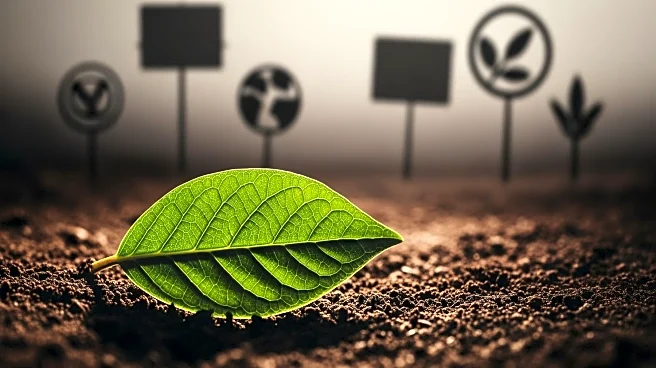What's Happening?
At the United Nations climate conference in Brazil, activists and scientists are calling for a transformation of the global food system. Agriculture, a major contributor to deforestation and emissions, is under scrutiny as protesters demand a shift towards
more sustainable practices. The conference features the 'Agrizone,' showcasing low-carbon farming methods, but faces criticism for the presence of industrial agriculture lobbyists. The debate centers on balancing the need for sustainable agriculture with the realities faced by poorer nations dependent on animal protein. Indigenous groups are advocating for recognition of their traditional land stewardship practices.
Why It's Important?
The focus on agriculture at the UN climate conference underscores the sector's significant impact on climate change. Reforming agricultural practices could lead to substantial reductions in emissions and deforestation, contributing to global climate goals. The discussions highlight the need for equitable solutions that consider the diverse needs of countries at different stages of development. The involvement of indigenous groups emphasizes the importance of integrating traditional knowledge into modern environmental strategies. The outcomes of these talks could influence international policies on agriculture and climate change.















